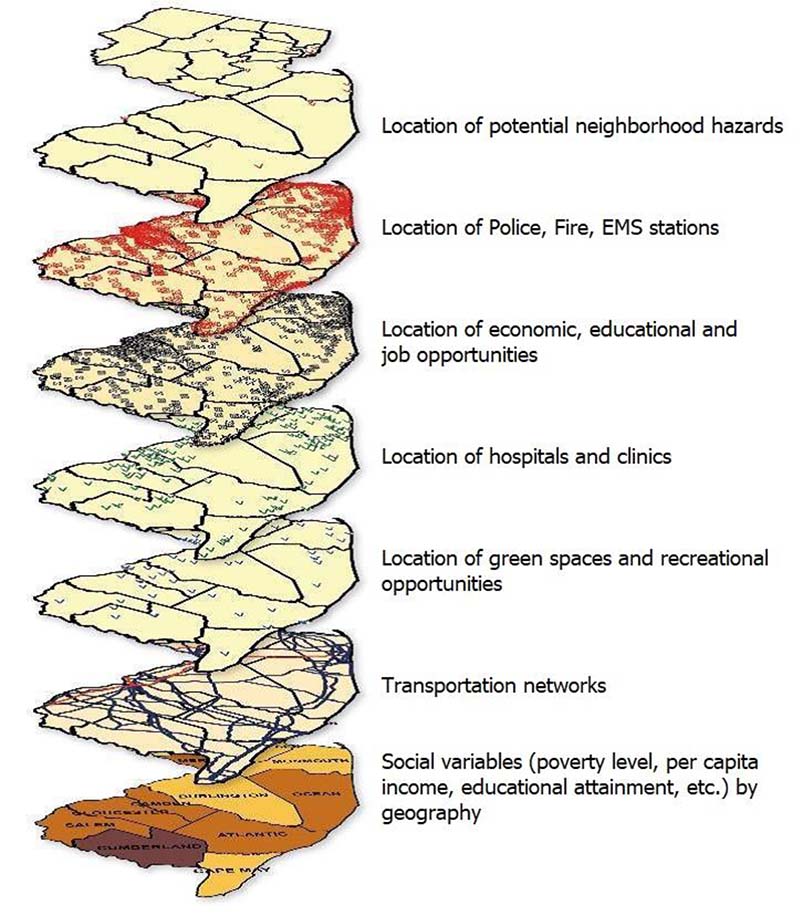Importance of Location-Based Social Determinants of Health

Jim Wooten, MBA, MPH
President/CEO, Geomark Consulting, LLC
Collingswood, NJ
One of the important outcomes of the COVID-19 pandemic was the renewed focus on the social determinants of health (SDoH), particularly as they disproportionately impact vulnerable communities. Among a list of determinants, several are location-based:
- Safe and healthy housing
- Reliable transportation
- Neighborhood security
- Access to healthy foods
- Access to social services
- Access to parks and open spaces
- Access to hospitals, ambulatory service centers, and urgent care clinics
In 2020, the National Committee on Quality Assurance (NCQA) created a Social Determinants of Health Resource Guide to help health plans and clinically integrated networks with their SDoH efforts.
What is the importance of more precisely identifying the location of SDoH?
As with any not-for-profit organization such as health systems and government payers, limited resources bring greater importance to allocation decisions through strategic planning. There may be no greater priority than optimizing constrained resources as healthcare organizations move to value-based care. Identifying the most important determinants impacting the health of the people who live in the communities served by each provider is essential. This is where the use of geographic information systems (GIS) tools and technology can be a critically useful tool.
GIS allows healthcare strategists to visualize and assess the SDoH that have the most impact on the health of the community in which they operate. It allows providers and payers to understand the infrastructure that is already in place (or is lacking) to provide the most efficient interventions with the best potential return on investment. It allows the isolation of a variable of interest (i.e. current housing) in spatial relationship to the location of a healthcare organization’s facilities. The image below highlights several such SDoH variables. These layers can be “shuffled” to visualize the spatial relationships among the most important determinants as identified by the provider as likely to have the most significant clinical result in their geographic area.
Geomark Consulting, LLC provides location-intelligence analysis that assists healthcare organizations with a variety of strategic planning efforts such as understanding the SDoH in the communities they serve. By providing rigorous geospatial analysis using up-to-date data, healthcare executives can make more timely decisions on important strategic priorities such as:
- Partnering with farmer’s markets and other sources of healthy food
- Partnering with real estate developers to identify safe and reliable housing
- Partnering with rideshare firms (Uber, Lyft) and other non-emergency medical transport (NEMT) companies to provide transportation for patients for medical appointments
- Understanding the changing demographics and psychographics in the communities they serve.
The results of this analysis can be delivered in a variety of formats including hard-copy paper maps, web maps, and web apps that can be visualized on computer screens, tablets, and smartphones.


